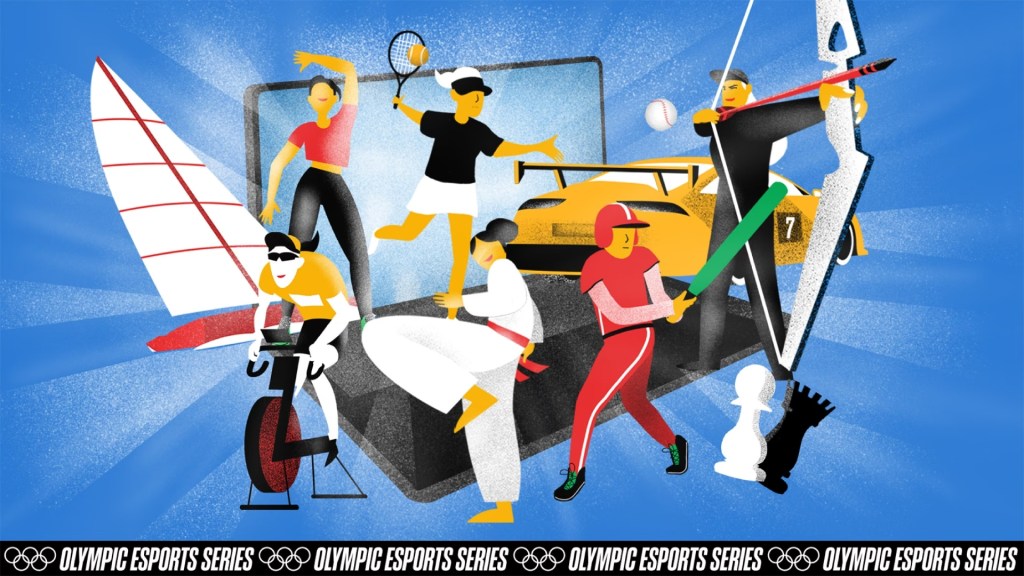On Wednesday, the International Olympics Committee announced that the Olympics will be holding an official Esports series this year. Qualifiers have already begun, and will culminate “in live, in-person finals…at the first ever Olympic Esports Week,” held in Singapore in late June.
At first glance, none of this is particularly surprising if you’ve been paying attention to the trajectory of esports in recent years. Esports have become increasingly popular, and their inclusion in the Olympics has been debated for a while. However, the obscure assortment of games chosen for the event—some of which are pay-to-win mobile games or only available on an indie console—are mind-boggling to anyone familiar with esports, which is a space led by games like League of Legends, Call of Duty, and Overwatch.
Videos by VICE
There are, of course, some reasonable choices; chess, hosted by Chess.com, for example. People love chess, and have been playing it for hundreds of years. Additionally, Chess.com has spent a lot of time and money trying to invest in chess as an esport. It feels like a pretty natural pick for an event like this. Racing title Gran Turismo, while a bit of a surprising choice, is, at the very least, a recognizable brand to many people. Additionally, as a digital version of motorsports, Gran Turismo is relatively readable to an audience more familiar with volleyball and rowing than League of Legends and Counter Strike. Finally, Just Dance, which only feels reasonable on account of its popularity, despite the fact that it seems like a bad sport to watch.
The other games chosen for the Olympic Esports Week will only be familiar to obscure mobile game enthusiasts, and those who follow the International Federations governing their favorite sports very closely. Virtual versions of archery, baseball, cycling, sailing, taekwondo, and tennis round out the series, with each game being a more confusing choice than the last.
Archery is represented by Tic Tac Bow, a game created by Refract Technologies, a Singapore-based studio, and published by Project 99. It is also worth noting that Refract Technologies’ founder is an active commission member of the Global Esports Federation. The game does what it says on the tin, combining archery with classic children’s game, Tic-Tac Toe, and was released in late February of this year to, so far, only one hundred and fifty downloads. It is also affiliated with the World Archery Federation, the International Olympic Committee’s recognized archery federation.
Refract Technologies is also the developer of Virtual Taekwondo, a flagship game for the Axis, the motion-tracking based console which the company successfully Kickstarted in 2018. The game uses motion tracking technology to translate real world body movements into the game, allowing for no-contact, virtual sparring.
Representing baseball is WBSC eBASEBALL™: POWER PROS, which is available on the PS5 and Nintendo Switch for a strangely low $.99. The World Baseball and Softball Confederation has partnered with Konami, the much-maligned publisher behind Metal Gear Solid and Silent Hill series, for the game.
Zwift and Virtual Regatta, virtual versions of cycling and sailing respectively, are relatively popular translations of their respective sports. The same cannot be said for Tennis Clash, a mobile game produced by Wildlife Studios, a massive mobile developer, which has a reputation for intense pay-to-win microtransactions. Product reviews across various app stores cite sudden, unpredictable changes in game balance from update to update, which can be alleviated by simply spending more money on the game.
The Olympics choosing to competitively legitimize a notorious pay-to-win sports game, especially in the company of enthusiast products like Zwift, Virtual Regatta, and Virtual Taekwondo, feels like an extremely odd decision.
The games chosen for Olympic Esports Week are in no way representative of what most people imagine when they think of esports, but they are oddly representative of the current state of games as a business. The breadth on display is really something to marvel at, ranging from prestige, AAA sports games, to predatory mobile games, and obscure, enthusiast products—the only consistency between them being their connection to the governing bodies of their respective sports.




